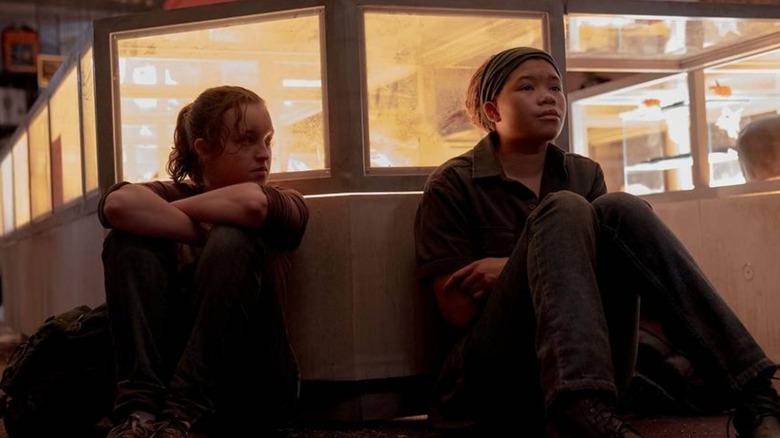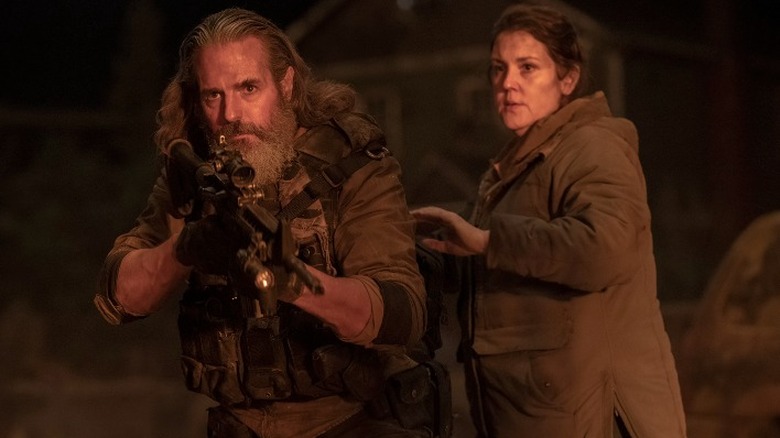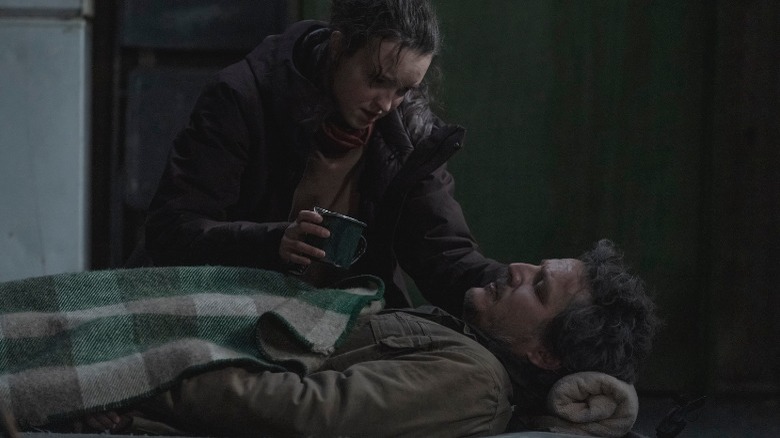HBO's The Last Of Us Only Used Action If It Would 'Move Character'
This post contains spoilers for the first season finale of "The Last Of Us."
The first season of "The Last Of Us" may have just ended, but series co-creators Craig Mazin and Neil Druckmann are already looking ahead. At a press conference attended by /Film's Ben Pearson ahead of the post-apocalyptic show's finale, the pair spoke about a topic that's come up often across the course of its nine episodes: Its relative lack of violence compared to the gruesome 2013 video game of the same name. This time, though, Mazin revealed that when it came to choosing which action-packed, infected-filled scenes to leave in and which moments to cut, the pair actually had "The Last Of Us: Part II" in mind.
"We did, at times, have choices to make about how we wanted to present the infected," Mazin shared. "I will say that, even though we were greenlit for a season of television, Neil and I felt like we can't just make a season of television without considering what would come after." The second video game in the franchise created by Druckmann is even grittier than the first. Many of its most memorable scenes are also its bloodiest, and it presents violent confrontations — some between humans and infected, others among humans — that are frankly tough to watch.
Striking a balance between seasons
"There is more 'The Last of Us' to come, and I think the balance is not always just about within an episode, or even episode to episode, but season to season," Mazin added. "It's quite possible that there will be a lot more infected later, and perhaps different kinds." Both Mazin and Druckmann explain that when it comes to determining what action is necessary, it was a matter of what worked for the TV format — and these characters. "Within the episodes we were concentrating on, we generally stressed the power of relationships and trying to find significance within moments of action," Mazin said. "There may be less action than some people wanted, because we couldn't necessarily find significance for quite a bit of it. Or a concern that it would be repetitive. After all, you're not playing it, you're watching it."
Scenes in which Joel (Pedro Pascal) or Ellie (Bella Ramsey) shoot a bunch of infected would surely be pricey and complicated to film, and what would they add to the experience of watching the series? We would see that they're tough and capable, yes, but those are two things we already know. "Although a lot of people do like to watch gameplay, it needs to be, I think, a little bit more focused and purposeful when we're putting it on TV," Mazin concluded.
Druckmann echoed the same sentiments, describing the major sequences in "The Last Of Us" in a way that makes them sound a bit like 3D chess. "We took a high-level approach and looked at the action across the board. And every piece of action, if you look at the show, has to move character in some way," he explained. "If it doesn't move character and it was only there for spectacle, it was an easy cut for us."
All the action we see matters
It's a system that has worked well for "The Last of Us," especially as its first season builds to a bloody crescendo. If viewers had seen Joel put bullets in hundreds of infected before, we might be desensitized to his final act of the season — the horrifying, impulsive slaughter of the team trying to find a cure. If we'd seen Ellie bash in a bunch of brains along the way, we might not have been left stunned by her brutal and emotional killing of David (Scott Shepherd). Craig Mazin and Neil Druckmann seem to take a surgical "less-is-more" approach to the series, cutting away the excess conflict to pare the story down to its most soulful, painful parts.
Druckmann and Mazin's approach to the show's action and violence is a tactic that has worked wonders for the story so far, but it clearly hasn't been done to spare our sensibilities. With these latest comments, it sounds like the pair were pulling punches specifically with "The Last Of Us: Part II" in mind, which means there's a lot more precisely-planned pain to come. Enjoy the off-season while you can, folks.


